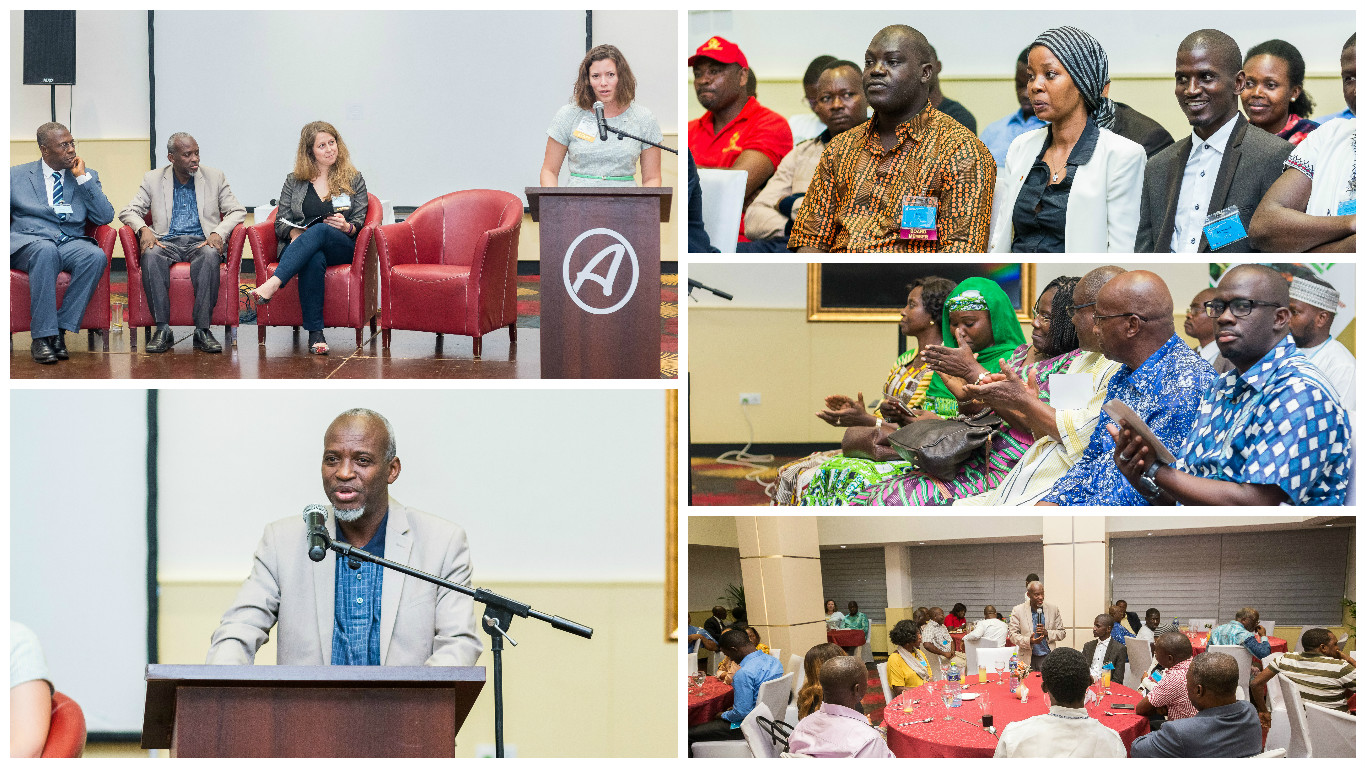
CORAF 23 May 2016 /
As youth involvement and empowerment in gainful and attractive agribusiness is one the key priority of its Second Operational Plan, the West and Central African Council for Agricultural Research and Development (CORAF/WECARD) has participated to the 2nd annual West Africa Regional Conference of the Mandela Washington Fellowship (MWF), the flagship program of President Barack Obama’s Young African Leaders Initiative (YALI), from May 19-21, 2016 in Accra-Ghana. CORAF/WECARD seized the opportunity to present its major achievements regarding the development of viable mechanisms/models on putting research into use for the benefit of young agripreneurs in West and Central Africa.
Even though, agribusiness can be profitable for youth, productivity gaps and market inefficiencies can be seen as major obstacles to their engagement in agriculture.
Therefore, CORAF/WECARD strongly believe that harnessing, exploiting and channeling opportunities to enlist and hold the interest of the African youth and women in agribusiness development is crucial if Africa wants to meet the agricultural growth target of 6 percent under the Comprehensive Africa Agricultural Development Program (CAADP) and the poverty reduction target of eradication of extreme poverty and hunger under the MDG1..
Represented by Dr Aboubakar NJOYA, the Director of Research and Innovation, on behalf the Executive Director, the institution has participated to a panel discussion on “Multi-sectoral Pathways to Sustainable Development”. The institution presented to the over 250 participants, different viable pathways that can lead to sustainable development in the agricultural sector. “Agriculture has the potential to create jobs and wealth for youths and there is an urgent need to build their entrepreneurship skills in agribusiness for an inclusive growth” said the Director of Research and Innovation of CORAF/WECARD.
During the conference, young participants also pointed out lack access to credit, improved technologies, practical skills and fair markets necessary as well as other logistics and services for agribusiness success.
As a response to youth concerns, CORAF/WECARD presented to the audience its major efforts targeting the small-scale farmers and youths so that they could have access to improved technologies, farming inputs such as certified high yielding seeds, processing facilities and markets in the sub-region. Among these, he presented the project co-funded by the West Africa Agricultural Productivity Program (WAAPP) and the Islamic Bank for Development (IsDB) on “Empowering youth for agripreneurship in West Africa” which aims to enroll over 1000 Young agripreneurs or young people interested in agriculture in a one-year mentoring process by harnessing the potential of ICT.
Furthermore, to facilitate the connection between WAAPP national coordination and young agripreneurs, CORAF/WECARD held a networking dinner which was opened by Nicole MECHEM, Chief of Party, Mandela Washington Fellowship for Young African Leaders at IREX (Washington-USA), Jennifer SCHNEIDER, Partnerships Advisor, Young African Leaders Initiative, USAID-Africa, Dr Abdoulaye TOURE, Lead Agricultural Economist and Task Team Leader of WAAPP- World Bank (Africa Bureau).
Then WAAPP National coordinators from Benin, Burkina Faso, Guinea, Niger and Liberia when given the floor to present key achievements in terms of putting research into use in agriculture and delivering cost-effective agricultural technologies/innovations to youth for profitable agribusiness development.
This was followed by Lighting Talks and experience sharing from fellows fully engaged in agribusiness. After sharing their success stories, some fellows pointed out several challenges and barriers to their businesses. In this line, Dr Abdoulaye TOURE, Task Team Leader of WAAPP- World Bank (Africa Bureau) took the commitment to support youth agribusiness operators through CORAF/WECARD initiatives in order to facilitate their linkage with markets and access to high impact technologies.







